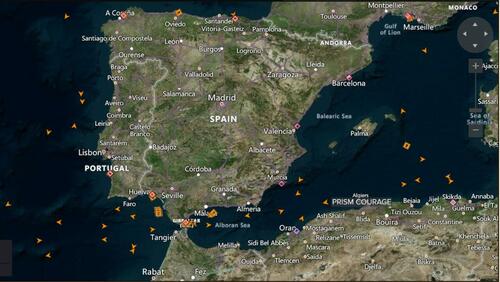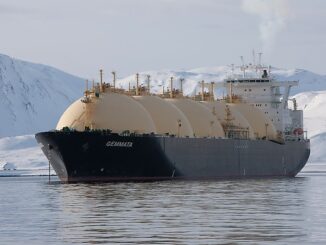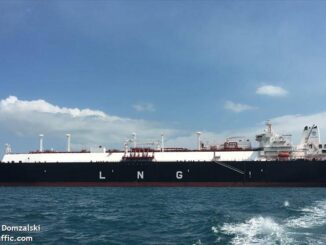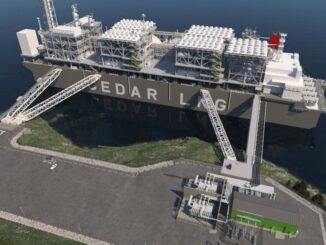
Spain has declared an “exceptional operational situation” as several dozen LNG tankers are stuck in line for its regasification terminals, significantly exceeding available slots, according to OilPrice.com.
Span’s Mugardos liquefied natural gas plant in the port of Ferrol
This week, Spain has made only six unloading slots available Reuters reported, citing unnamed sources, but there are more than 35 LNG carriers idling off its coast. The country has six LNG import and regasification terminals and is the biggest LNG importer in the EU.
Congestion at Spain’s LNG terminals
The tanker pileup highlights Europe’s problem with LNG import capacity that prompted Germany to urgently strike a deal for the construction of two floating facilities so it can receive LNG directly.
The region has had to find alternative supplies, including LNG, but the arrival of multiple cargoes of the superchilled fuel has exposed Europe’s lack of “regasification” capacity, as plants that convert the seaborne fuel back to gas are operating at maximum limit.
If the backlog is not cleared soon those ships may start looking for alternative ports outside Europe to offload their cargo.
Meanwhile, there is more LNG floating off the European coast, Reuters reported, citing more sources, suggesting the 35-strong tanker crowd off Spain is only part of the actual pile-up.
“Floating storage levels in LNG shipping is at all time high levels with slightly more than 2.5 million tonnes tied up in floating storage,” Flex LNG Management chief executive Oystein Kalleklev told Reuters.
An LNG analyst from ICIS confirmed to Reuters there were a lot of LNG carriers idling off the Spanish and UK coast and circling the Mediterranean. And while they do that, the gas they carry cannot be used or put into storage.
According to ICIS’ Alex Froley, however, insufficient regasification capacity is not the only reason for the pile-up: prices for later deliveries of LNG in Europe are some $2 per mmBtu higher than current prices, which may have motivated some traders to keep their cargo on the water until late November or early December.
Meanwhile, U.S. LNG exports to Europe continue to be strong, despite the outage at Freeport LNG. In September, U.S. LNG producers shipped 87 cargoes of liquefied gas abroad, with the total at 6.25 million tons, Reuters reported earlier this month citing tanker tracking data. Of this, 70 percent went to Europe, the data showed.



